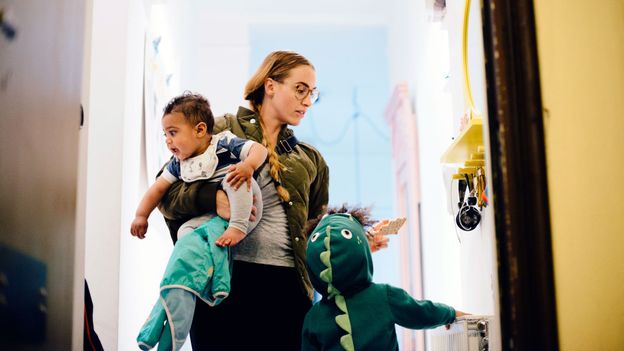A lot of it depends on how you want your family life to be. Creche is a one drop off and one collection day, and while not amazing, is manageable with planning of split drops and collects and once you are home in the evening then that is it. Typically if two working parents, getting involved in school activities, after school sports and matches etc becomes very challenging. School aged kids might have multiple of these plus the potential requirement for pre school care as well. It really becomes a logistical nightmare, it can be impossible to get childcare that can work around that. So it often comes down to that, if we want our kids involved in things other than school, a parent needs to be around more. Also some families have kids who need more support with homework, maybe things like speech therapy etc that again require in person parental involvement and can't be outsourced. In an ideal world the working day and the school day would better align (giving a longer lunch break/more PE to kids as an example, allowing parental leave to be taken in the afternoons another example).
Then on the other side, anecdotally most families I know have 3 kids...that is 3*maternity leave, potentially 3* time off during pregnancy for illness, ??? of years of lack of sleep. Not all of those impact the working fathers so it is here that working mothers can fall behind their potential career path, meaning their compensation is lower and then when all of the above comes into play and one parent is needed at home more it becomes a financial choice. And once out of the workforce it can be really hard to get back in, depending on the industry and the willingness of the family to step back up again when used to having someone home to manage home and kids life.
